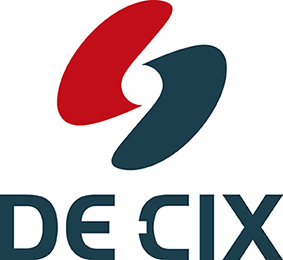A Simple Trick is What Helps Us Get Started
Harald A. Summa, CEO of the eco Association, explains that we should focus on the objectives, not the tool, to understand the potential of AI.

© francescoch | istockphoto.com
This article was first published as part of the study “Artificial Intelligence: Its Potential and the Lasting Transformation of the German Economy,” published by the eco Association in cooperation with Arthur D. Little and with the kind support of the Vodafone Institute.
How important is AI for our economy? A simple question to which there seems to be no easy answer. This may be because, on the one hand, the topic is so complex, so multi-layered, and visionary that not even experts would claim to have understood it.
On the other hand, AI is also an issue that easily triggers opinions: Be it the opinion that the problems artificial intelligence is dealing with are only of interest to geeks – or, on the other hand, that people will urgently need to search for pursuits that will still be relevant even after the singularity has occurred.
But it may also be quite simply due to the term. “Artificial intelligence”: Who can visualize anything in response to this term? And who has the overview and the imagination to envision working in cooperation with artificial intelligence in their own place of work? I suspect that many cannot do this.
What might help us on the way is one simple trick: Let’s talk about the objective rather than the tool. Let us simply replace the term “artificial intelligence” with terms with which we are all much more familiar, because they have been drivers of innovation and competition since the beginning of industrialization. Instead of talking about AI, let’s talk about improving efficiency, minimizing downtime, and managing supply and value chains more precisely. Let’s talk about automation.
So, what’s on the table here are exactly those topics that are – thanks to intelligent technical solutions – already on the agenda in every company today, at least those that want to survive in the market tomorrow. How important is AI for the industry? Anyone asking this question must be prepared for many different opinions. But for anyone who asks about the importance for the economy of efficient and smooth operational processes, the unanimous answer will be: “They are indispensable.”
This is especially the case given that new data-based business models have been emerging for some time. And in these, the former product – a valve, a measuring device, a car, or even the entire factory – is seen as the producer of a new raw material: data. Therein lies yet another new source of money.
Who will run this data-based business in the future? That’s not settled yet. There is no guarantee that those who provide the hardware will get their hands on the data. But what is pretty certain is that anyone who does not appreciate the value of this data, or does not know what to do with it, will miss a great opportunity.
And one thing is definitely certain: Anyone who wants to make the most of this opportunity will be unable to avoid the new planning, control, efficiency, process optimization, and automation possibilities that run under the term AI. AI is therefore not only already enormously important for our economy today – it’s also continuing to get even more important.
_ _ _
Analyses, facts and figures, expert opinions, and example applications – on the basis of the investigation of 150 use cases – can be found in the study “Artificial Intelligence: Its Potential and the Lasting Transformation of the German Economy,” published by the eco Association in cooperation with Arthur D. Little and with the kind support of the Vodafone Institute.
Harald A. Summa has been Chief Executive Officer (CEO) of DE-CIX since 2003. Harald A. Summa is also CEO of DE-CIX International GmbH and of DE-CIX North America Inc. DE-CIX is the world's leading Internet Exchange operator. DE-CIX’s Internet Exchange in Frankfurt has the highest data throughput worldwide. Harald A. Summa is also the initiator and CEO of eco – Association of the Internet Industry.
As a co-initiator, Harald A. Summa was involved in the foundation of the European associations EURO-ISPA and Euro-IX, whose particular aim is to improve the European Internet infrastructure. Harald A. Summa was also until 2018 a core member of the Advisory Board for the “Young Digital Economy” of the Federal Ministry for Economic Affairs and Energy, which seeks to provide stimulus for the future of Germany’s digital economy and for the development of new digital technologies, and a member of the Advisory Board for the “Digital Economy” in North Rhine-Westphalia.
Summa has been active in management and consulting in the Internet and IT industry for more than 30 years, during which time he has spent more than 20 years managing various companies. He was a lecturer at the University of Cologne in Applied Informatics for a period of 10 years. Summa has written many specialist articles and given lectures on the topics communication, marketing, and sales. Summa’s numerous publications, as well as TV and radio appearances focus in particular on the topics of the Internet, security, and e-commerce.






